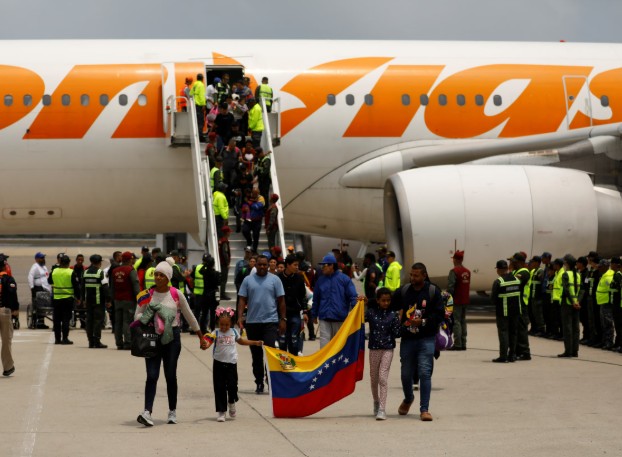U.S.-Venezuela Deportation Agreement: Flights Resume After Two-Week Stalemate

In a significant development in U.S.-Venezuela relations, a flight carrying Venezuelan migrants deported from the United States landed in Venezuela today, marking the resumption of repatriation flights between the two countries. This follows an agreement reached after a two-week deadlock in which diplomatic tensions had escalated over the deportation of Venezuelan migrants.
The U.S. and Venezuela have reached a consensus to restart the deportation flights, which had been suspended amid rising tensions. These repatriation efforts are part of a broader initiative to address the ongoing migration crisis, with both countries working to manage the flow of migrants in a way that addresses concerns of national security and humanitarian needs.
The resumption of flights comes after a controversial period in which the United States had been sending Venezuelan migrants to El Salvador, a move that angered Venezuela’s government and further strained relations. Venezuela had strongly opposed these deportations, viewing them as a violation of sovereignty. However, after several rounds of negotiations, both countries have agreed to resume direct repatriations.
Diplomatic Implications and Future RelationsThe resumption of deportation flights signals a potential thaw in U.S.-Venezuela relations, although the two nations remain deeply divided on a number of issues. While this step is seen as a diplomatic breakthrough, it underscores the complexities of migration policy and international relations, with both sides seeking to balance their domestic concerns with international cooperation.
Venezuela’s government, which had expressed anger over the previous deportations to El Salvador, has welcomed the new arrangement, with officials asserting that it aligns more closely with Venezuela’s interests. This agreement is expected to pave the way for further diplomatic discussions on migration and other critical issues, though challenges remain.
For the United States, this move reflects the ongoing efforts to manage migration at its southern border while negotiating terms with countries like Venezuela, which has been a significant source of migrants in recent years due to the country’s economic and political turmoil.
Challenges Ahead for the U.S.-Venezuela RelationsDespite the resumption of deportations, this agreement is just one part of a broader and more contentious relationship between the U.S. and Venezuela. While migration remains a critical issue, other challenges such as the economic sanctions placed on Venezuela by the U.S., ongoing political instability, and human rights concerns continue to create friction between the two nations.
In the coming months, it remains to be seen how this repatriation deal will impact broader diplomatic efforts, and whether it will open the door for more comprehensive cooperation or serve as a temporary compromise in the complex relationship between the two nations.
